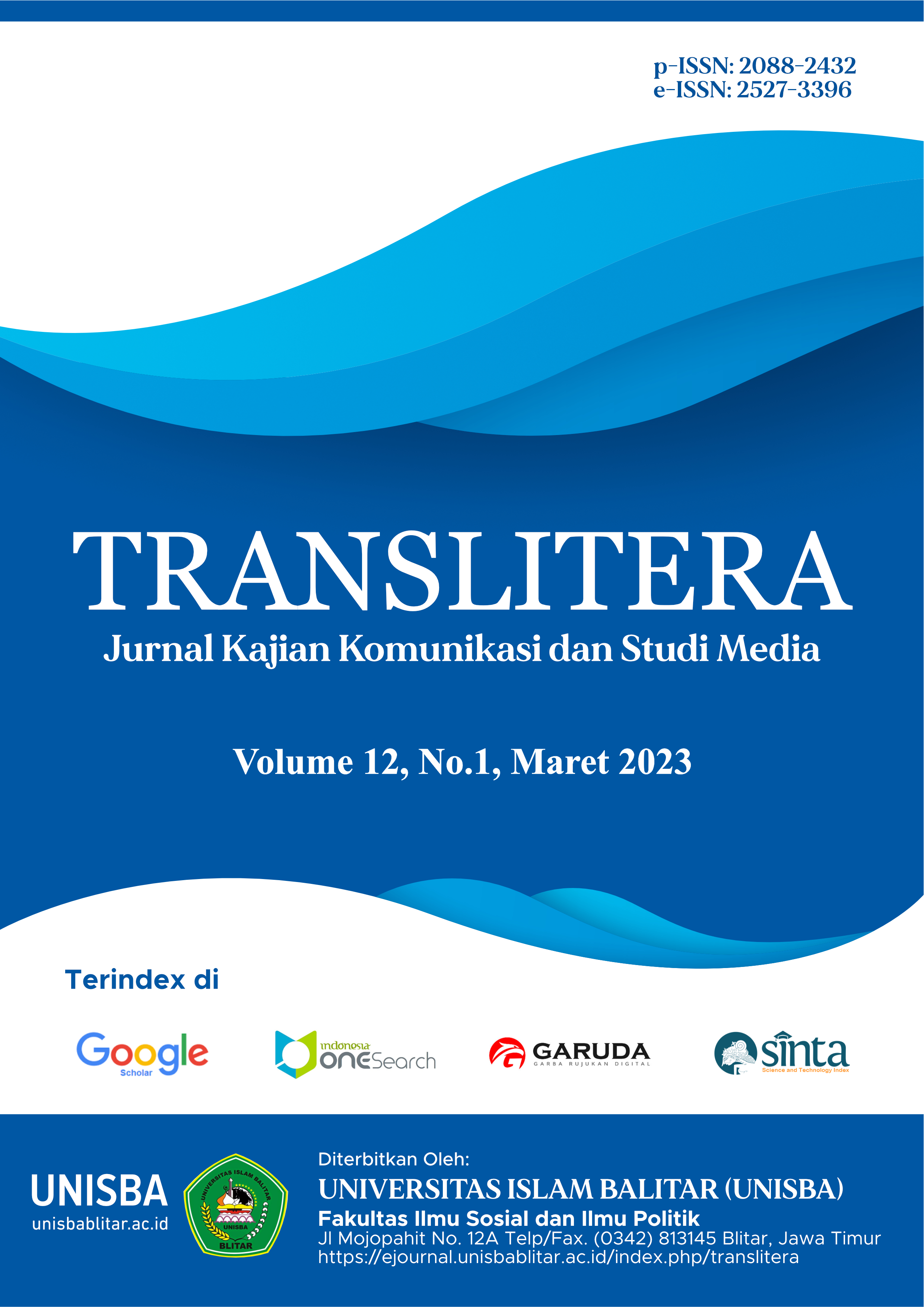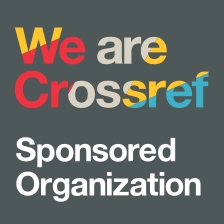Analysis of the Effect of Games the Sims as an Attitude Change to Millennial Generations
DOI:
https://doi.org/10.35457/translitera.v12i1.2704Keywords:
Persuasive Theory, Game, The Sims, MillenialAbstract
Video games or online games have appeared in Indonesia since 2001. Since then, video games have grown rapidly and are in great demand. One of them is The Sims, a simulation game of daily activities in great demand by Indonesian people. The purpose of this study is to analyse changes in the behavior of the millennial generation with the emergence of the sims game. This study used a qualitative descriptive approach and conducted interviews with four informants using focus group discussion interviews as a data collection method. Using Perloff (2017), it can be concluded that this research provides a persuasive effect on players so as to create changes in behavior in terms of developing creativity and ideas that arise in the minds of players, there are changes in playing time, style of appearance, makeup, and emotional players.
References
C. Herodotou, N. Winters & M. Kambouri (2012) A Motivationally Oriented Approach to Understanding Game Appropriation, International Journal of Human–Computer Interaction, 28:1, 34-47, DOI: 10.1080/10447318.2011.566108
DeVito, J. A., & Maulana, A. (2011). Komunikasi Antar Manusia (5th edition ed.). Karisma Publishing Group.
Efendi, Z., Christy, T., & Yuma, F. M. (2021). Penyuluhan Dampak Penggunaan Game Online Kepada Siswa Sma Negeri 1 Buntu Pane. Jurnal Pemberdayaan Sosial dan Teknologi Masyarakat, 1(2), 122-127. doi:https://doi.org/10.54314/jpstm.v1i2.739
Fahmi, M. (2015, January 10). Nostalgia Review The Sims – Karena Hidup Di Dunia Nyata Tidaklah Cukup. Tech in Asia Indonesia. Diperoleh September 28, 2022, dari https://id.techinasia.com/nostalgia-review-the-sims
FK UI, i. s. (2019, July 12). Jumlah Pecandu Game Online di Indonesia Diduga Tertinggi di Asia – Info Sehat FKUI. Fakultas Kedokteran Universitas Indonesia. Diperoleh September 28, 2022, dari https://fk.ui.ac.id/infosehat/jumlah-pecandu-game-online-di-indonesia-diduga-tertinggi-di-asia/
Hanika, I. M. (2016). Self Presentation dalam Kehidupan Virtual. Jurnal Ilmu Komunikasi, 13, 93-108. doi:https://doi.org/10.24002/jik.v13i1.601
INDAHTININGRUM, F. (2013). Hubungan Antara Kecanduan Video Game Dengan Stres Pada Mahasiswa Universitas Surabaya. Calyptra: Jurnal Ilmiah Mahasiswa Universitas Surabaya, 2(1), 2. https://journal.ubaya.ac.id/index.php/jimus/article/view/147/125
Kementerian Komunikasi dan Informatika. (2017, March 16). Evolusi dan Klasifikasi Permainan Elektronik di Indonesia. Ditjen Aptika. Diperoleh November 22, 2022, dari https://aptika.kominfo.go.id/2017/03/evolusi-dan-klasifikasi-permainan-elektronik-di-indonesia/
Lestari, R. (2016). pengaruh game online terhadap motivasi belajar siswa pada mata pelajaran kearsipan kelas XI AP SMK Swasta Budisatrya Medan tahun pembelajaran 2015/2016. Diperoleh Tanggal 08 Januari 2018 dari https;//diglib.unimed.ac.id/5486/
Nurazmi, A., Elita, V., & Dewi, W. N. (2018). Hubungan Kecanduan Bermain Game Online Terhadap Regulasi Emosi Pada Remaja. Jurnal Online Mahasiswa, 5(02). Diperoleh dari https://jom.unri.ac.id/index.php/JOMPSIK/article/view/21294/20603
Perloff, J. M. (2017). Microeconomics. Edison-Wesley.
Perloff, R. M. (2017). The Dynamics of Persuasion Communication and Attitudes in The 21st Century (6th edition ed.). Routledge.
Putri, P. K. (2016). Aplikasi Pendekatan-Pendekatan Persuasif Pada Riset Pemasaran: Iklan Melibatkan Penciptaan dan Penerimaan Pesan Komunikasi Persuasif Mengubah Perilaku Pembelian. Jurnal the Messenger, 8(1), 1. https://journals.usm.ac.id/index.php/the-messenger/article/view/313/211
Romli, K. (2017). Komunikasi Massa. Gramedia.
Tasha, T. (2017, March 16). Evolusi dan Klasifikasi Permainan Elektronik di Indonesia. Ditjen Aptika. Diperoleh September 28, 2022, dari https://aptika.kominfo.go.id/2017/03/evolusi-dan-klasifikasi-permainan-elektronik-di-indonesia/
The Sims. (2022). Diperoleh dari https://www.ea.com/games/the-sims
Yuliani, W. (2018). Metode Penelitian Deskriptif Kualitatif Dalam Perspektif Bimbingan Dan Konseling. QUANTA, 2(2), 84. doi:DOI: 10.22460/q.v2i1p21-30.642
Downloads
Published
Issue
Section
License
Authors who publish with this journal agree to the following terms:
- Copyright on any article is retained by the author(s).
- Author grant the journal, right of first publication with the work simultaneously licensed under a Creative Commons Attribution License that allows others to share the work with an acknowledgement of the work’s authorship and initial publication in this journal.
- Authors are able to enter into separate, additional contractual arrangements for the non-exclusive distribution of the journal’s published version of the work (e.g., post it to an institutional repository or publish it in a book), with an acknowledgement of its initial publication in this journal.
- Authors are permitted and encouraged to post their work online (e.g., in institutional repositories or on their website) prior to and during the submission process, as it can lead to productive exchanges, as well as earlier and greater citation of published work.
- The article and any associated published material is distributed under the Creative Commons Attribution-ShareAlike 4.0 International License












